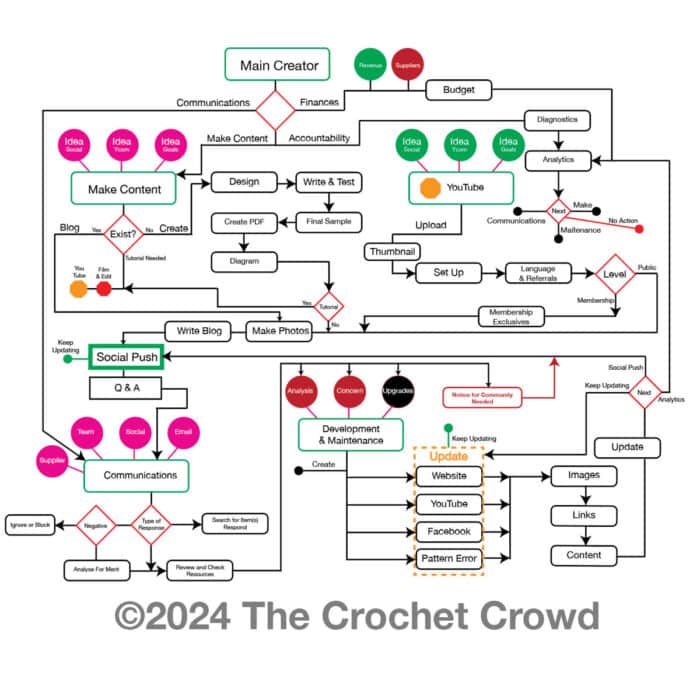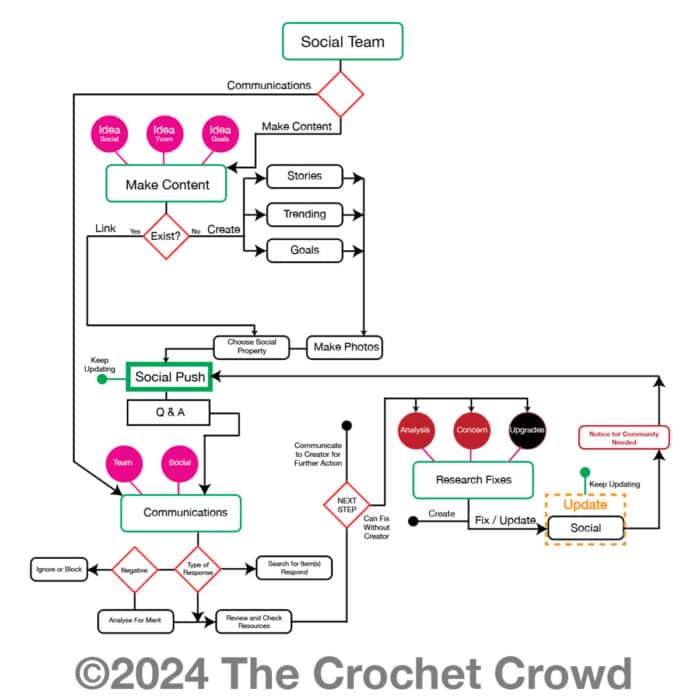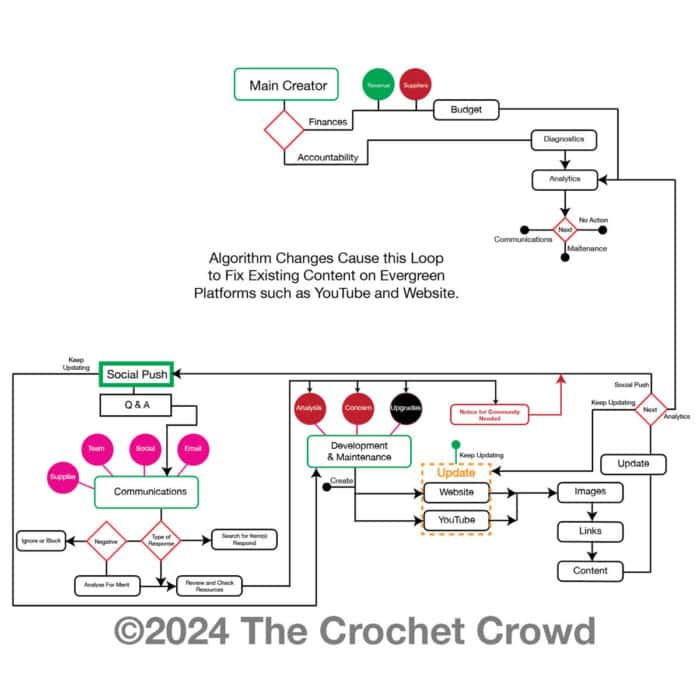Have you ever wondered what a creator does? Have you seen creators and think to yourself, oh, they are just doing this and that and getting paid? So why does a creator feel stressed, burned out and exhausted?
From the public's point of view, the creator creates content, presents it, and does it with a smile or a nod to help you in some way. It could be entertainment or, in our case, education.
Most creators are usually solo or have a team of people, including family members, friends, or associates, whom they hire once the ball gets going. Let's face it, social media is here to stay.
Tracking the Creator
The creator is not only creating content but also responsible for several more things that go unseen such as financing, analysis and development. What the public sees is the product of 'making content' but the other main umbrella processes allow the content to be there.

In creating since 2008, I decided to work out a flow chart of my job to see if there is anything I can cut off to free up time. The simple answer is no. Upon reviewing this, this flow chart can sometimes be all of this in one day or different funnels along the pathways of the processes.
Team Members
I tracked the flow of team members that step in to assist in the social realm but also looking at Wendy's role, she too is also doing things behind the scenes that goes unnoticed as an individual process but is part of the creator to some degree. There are some elements of the business where Wendy is not involved such as making YouTube content and I prefer her to not to do website development as her role with the social media realms is already a lot to ask.
Wendy also has access to analytics to see what she is doing and how the community likes her content, such as the Facebook stories and interactions with the community.

The social team and the creator also have micro-processes within the social properties, such as monitoring, social approvals and conflict resolution.
The Mistake
The creator, at least I do, spends a lot of time on the right side of the flow chart. Not all negative feedback is terrible feedback. Some of it is just a consumer trying to give us a helping hand to see or notice something is wrong.
Each time a consumer has a wishlist item(s), it will cost the creator at least time if not financial resources to make it happen.
Many new creators say, "All the consumers want this..." and bust their ass to make it happen when it could just be up to five or so people requesting the same thing. Are five requests enough to justify a change in a community where thousands of people are? You have to ask that for yourself.
Every time I make a blanket, it's either the wrong size, the wrong yarn, or someone requests changes to the shape. It's a fundamental part of social media that you will fail people and their wishes. You cannot move forward if you keep going backward to give people what they wish you would have done.

Flow Charts
The flow chart doesn't contain everything that a creator may do. While The Crochet Crowd keeps editing and most things, other than technology, in house to do and problem solve on our own, there are other creators that have other people who do things.
Some creators have others develop ideas, patterns, and more for use. They are called contractors, where the creator may have a concept but contracts it out for another person to do. That's another stream of processes for that alone, and it also costs more money. I've not gone down this route as I prefer to do things independently.
Some creators may have content managers or people not in-house to create content or edit and more. This increases the cost of doing business as well. The Crochet Crowd keeps this in-house, which limits time allowance and helps keep the patterns for free.
Wake Up Call
Many creators that start get a bold, complex, hard-hitting reality check when they start. Most will quit after they realize the commitment involved. People in this realm with kids will have more difficulty balancing life, as social media is a monster that needs to be fed. There is the world looking at a creator; if the creator doesn't fit another person's ideals, this opens the creator up to significant abuse and fear.
If I were to give another up-and-coming creator a piece of advice, make sure whatever you do is 'scalable.' This means that if you start something, you can maintain it. If you start big, it's harder to scale back with the public's expectations versus starting off with what you are comfortable with and scaling upward but never exceeding what you can do.
Try to have fun, and don't take yourself too seriously. Not everyone is your friend or looking at your best interests. Be true to the person you want to be.
Leave me your thoughts...